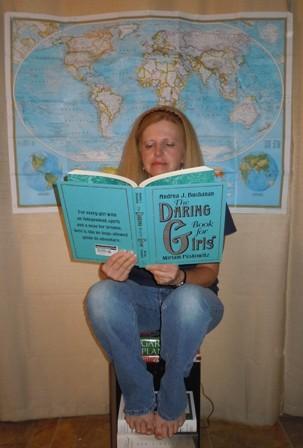Cheryl Hughes: Meat and Potatoes
1798, an Englishman by the name of Thomas Malthus published his “Essay on Population.” It argued that because food increased at an arithmetic rate (1,2,3,4,…) and population at a geometric rate (1,2,4,8,16,…) there would eventually be too little food. He added that only war, famine, disease, or moral restraint could check the increase in population (A History of England, by Clayton and David Roberts). His observation was a bit harsh, but it contains some relative information for our present day. Because of modern breakthroughs in medicine, our life expectancies far exceed those of our ancestors—even our own parents. As the population increases so does the demand for food. As the demand for food increases so does the demand for those who grow food. Since farming doesn’t seem to be a job market that people are flocking to in droves, we might be in for a spell of trouble.
Last Wednesday, I followed a line of traffic that was following a huge John Deer tractor down Campbell Lane in Bowling Green. There are still cornfields in that area, and the driver was on his way to one. The tractor took up both highway lanes traveling northeast. There was no getting around the monolithic machine. The situation was a scene right out of the Craig Morgan song, “International Harvester.” As I watched and listened to the disgruntled drivers, I thought, “These people must think meat grows in cellophane and veggies sprout from those big cardboard bins at Walmart.”
Lest I sound too sanctimonious, I have done my own share of complaining about farming. I have cursed the day that I ever learned how to use a garden hoe. I even told my husband, Garey, that the reason I chose to marry him was because he is from Alabama and he didn’t have a clue about how to raise tobacco. I have zero good memories when it comes to raising tobacco. It is hot, heavy, sticky work, but it was the cash crop my parents used to buy cows, pigs, and fertilizer for the large garden we raised every year. My two younger sisters and I spent a lot of time hoeing in that garden, and we all three swore we would never marry farmers. Out of the three of us, I’m the only one who did.
When I met Garey, he ran a coal mine for his dad. I had no idea that years later, we would be raising cattle, planting corn and raising gardens the size of Guinness World Book proportions. I wouldn’t learn until later in our marriage that Garey’s family had truck-farmed while he and his sister, Charlotte, were growing up; and his maternal grandfather had raised ten girls—they each had their own hoe—on a farm. I remember asking Agnes, Garey’s mom, “How could he afford a hoe for each of you?” To which she replied, “He couldn’t afford not to get each of us a hoe.”
When our kids were young, Garey would help them put out a watermelon and cantaloupe patch, which they would work and then sell at the store we owned at the time. As we worked together in our garden this past Saturday, Garey looked up at me and said, “I wonder if our kids could even remember how to plant a garden if it came down to them having to do it in order to survive.” I recounted the Campbell Lane/tractor story for Garey. “Our kids wouldn’t have been in the group that were blowing horns and shouting at the driver,” I told him, “Farming gets in your blood, whether you want it to or not. I think they could pull it off.”
I really hope more people choose farming as a profession. I realize that it doesn’t always come with the respect it deserves, but I have a feeling that down the road, all of that is going to change.
- Log in to post comments



























